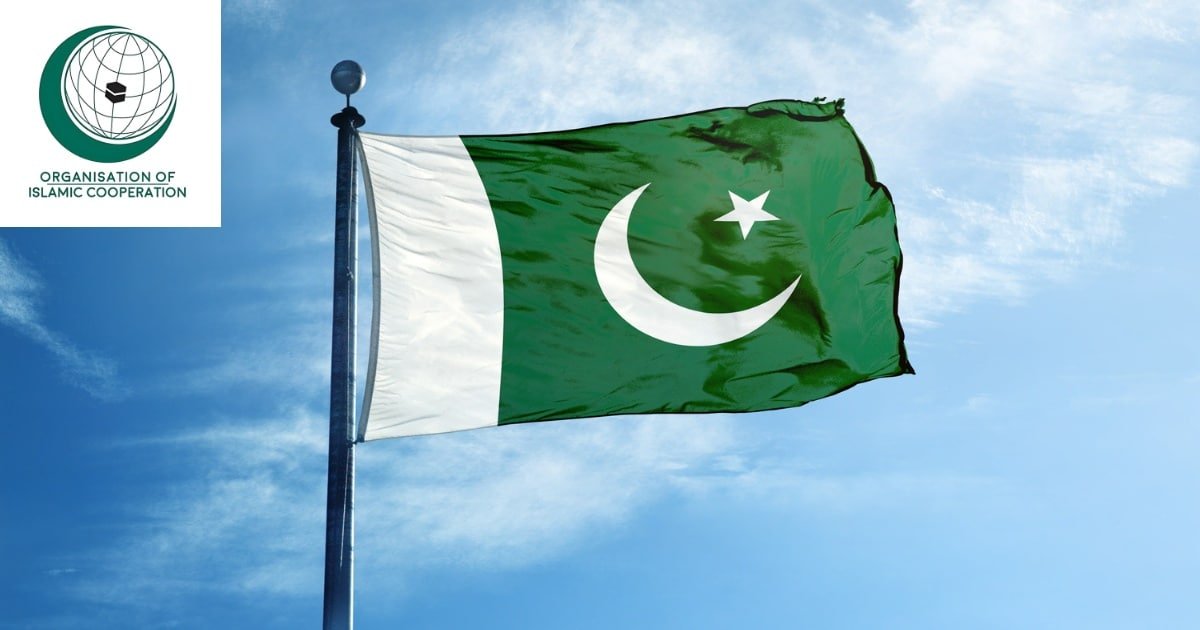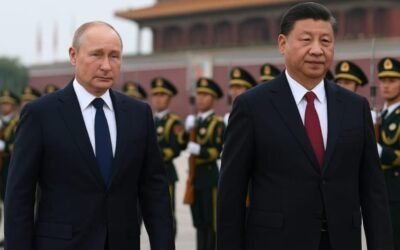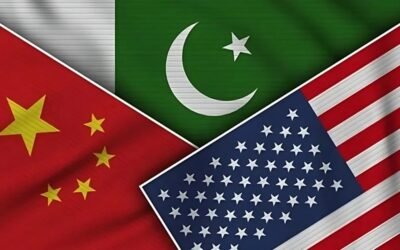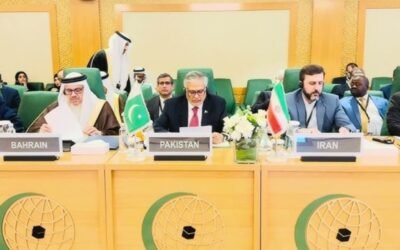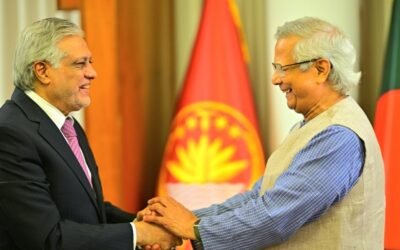Cooperation (OIC) is facing a turning point. International conflicts are increasing, and alliances are changing rapidly. The role of Pakistan has become even more important at this moment. Islamabad is in the forefront as a non-permanent member of the UN Security Council and the active voice of OIC diplomacy. Its enhanced focus is about power, not just presence. Pakistan is contributing towards making the OIC a more powerful and trustworthy organization in the Muslim world.
Pakistan as Diplomatic Vanguard: UN-OIC Synergy
Since July 2024, Pakistan has been a member of the UN Security Council presidency. It utilized this platform to call for a consolidated, long-lasting role for the OIC within the framework of global efforts to achieve peace. Islamabad hosted two major events. One emphasized the peaceful resolution of conflict. The other one was the Security Council briefing on UN-OIC cooperation. The session was chaired by Deputy Prime Minister Ishaq Dar, who called the OIC an indispensable partner in promoting peace and trying to resolve conflicts such as Palestine, Kashmir, Afghanistan, and Sudan. It was not merely a symbolic action, but measured diplomacy. Led the session with OIC Secretary-General Mr. Yousef M. Al Dobeay and top UN officials, Pakistan made Chapter VIII of the UN Charter a reality in terms of policy. This effort was supported by UN Assistant Secretary-General Mohamed Khaled Khiari, who said the voice of the OIC has been given significant importance in mediation. Pakistan played a part in ensuring that weight was felt.
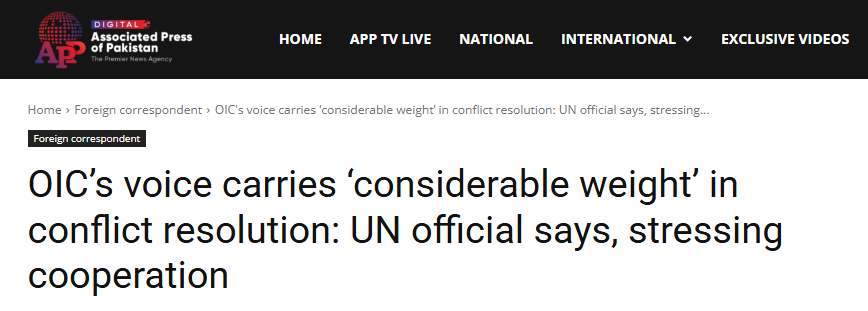
Source: APP
Reclaiming Core Issues: Kashmir and Palestine with Unprecedented Clarity
Pakistan is using its OIC platform to bring long-ignored Muslim issues back to global attention. On Kashmir, a conflict buried at the UN until China revived it in 2019, Ambassador Asim Iftikhar Ahmad made a clear case. He pressed for action on UNSC resolutions that promise Kashmiris the right to self-determination. Regarding the Palestine issue, Deputy Prime Minister Ishaq Dar didn’t hold back. At the OIC Council of Foreign Ministers, he called Israel’s assault on Gaza a “genocidal campaign”. He linked it directly to wider regional instability. “Israeli aggression against Iran is not an isolated event,” he warned. “It’s part of a dangerous pattern.” Importantly, Pakistan also shaped OIC resolutions with care. It introduced rare language condemning the October 7 attacks and urged hostage releases. This marked a smart, balanced shift, showing Pakistan’s growing influence even in the most consensus-driven forums.
You May Like To Read: Pakistan, Israel, and the Politics of Recognition

Source: Arab News
Architect of Intra-OIC Conflict Mediation and Counterterrorism
As the architect of intra-OIC conflict mediation and counterterrorism, Pakistan is pushing the OIC beyond words and into action. It is helping shape the bloc as a genuine mediator in Muslim-world conflicts. The OIC’s support for UN-led efforts in Sudan and Afghanistan illustrates this shift. In Afghanistan, the OIC’s role in the Doha Process, backed by its moral authority, has helped pressure the Taliban, especially on women’s rights. Pakistan brings hard-earned experience to the table. Its long, costly fight against terrorism now guides its diplomatic efforts. In 2024, Pakistan helped shape a UN-OIC memorandum on counterterrorism. It includes joint work on de-radicalization and engaging lawmakers. This move transforms Pakistan’s security lessons into a shared strategy. It’s a clear step from symbolic diplomacy to hands-on cooperation, driven by Pakistan’s vision and expertise.

Source: Business Recorder
Economic Statecraft: Using the Leverage of a Diversified Bloc
Pakistan, being the 9th largest economy in the OIC with a GDP of $0.34 trillion, finds the untapped potential in the combined power of nearly $10 trillion in the OIC. Trade between OIC members is weak, with Islamabad seeking to transform it. It emphasized the need for enhanced economic cooperation among OIC members in the form of a joint venture in agriculture, technology, and halal activities, which connects the major economies, such as Turkey, Indonesia, Saudi Arabia, and the UAE, with developing members. It also supports crisis financing mechanisms, including OIC-wide humanitarian funds to weaker states like Afghanistan that are funded by the Islamic Development Bank. Pakistan is also aggressively promoting the further integration of Islamic finance through the development of Sukuk markets and digital payments to decrease dependency on dollars. It is an economic vision that transforms the diversity of the OIC into a strategic asset, which is what the OIC Charter demands.
You May Like To Read: Sindh CM Joins Special Children for Flag-Hoisting at Quaid-e-Azam House
Conclusion
Pakistan’s renewed role in the OIC comes at a critical time for the Muslim world. As global power struggles grow and multilateral systems weaken, the OIC can no longer rely on words without action. Pakistan offers a clear way forward. It brings diplomatic reach, especially through the UN Security Council, alongside real-world conflict mediation, economic cooperation, and bold institutional reforms. The July 2024 Astana Declaration, co-chaired by Pakistan, called for deeper political ties and stronger scientific collaboration. This reflects Islamabad’s broader vision: an OIC that shapes the global order, not just reacts to it. With Pakistan’s steady leadership, the OIC can grow into more than a symbol. It can become a true force for peace, progress, and dignity in the Muslim world.

